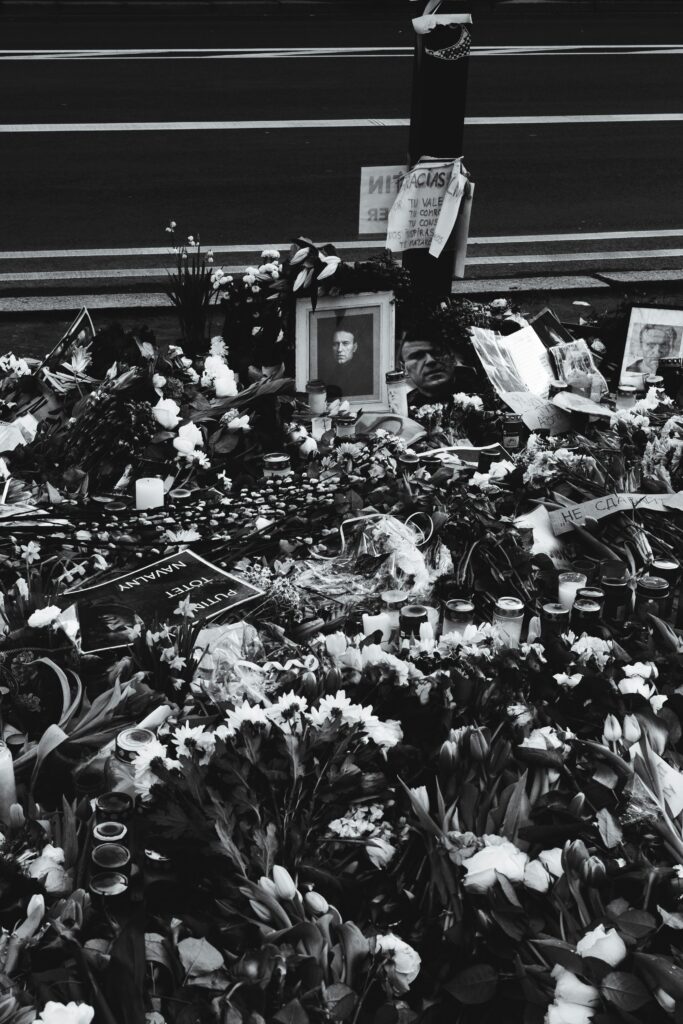
“The last of the major Russian opposition”: The death of Alexei Navalny
Photo courtesy of Nikita Pishchugin on Unsplash
C.J. Eldridge, News and Features Editor
Russian opposition leader Alexei Navalny, member of the Russia of the Future party, died on February 16 at the Arctic Circle prison colony in Siberia.
Navalny rose to prominence as an anti-corruption lawyer, gaining a reputation by uncovering corrupt deals between the Russian government and industries. He investigated energy industries involving oil and natural gas.
North Greenville University Professor Jong eun Lee, who lived 11 years in Russia, said Navalny was “one of the last very prominent figures calling for grassroots opposition against Putin’s government.”
There have been others who publicly protested the government in the past, but they were either exiled, imprisoned or died of unknown causes. He first became a critic of Putin when the Russian president made his intentions to become “president for life” apparent.
Navalny led an attempt to prevent this, with his biggest motivator being his belief that Russia should have competitive elections.
“Right now the opposition are not given a fair chance to compete,” Lee said.
They aren’t invited to events and aren’t given permission to use public squares. There are lots of restrictions on them. They also don’t have many members in the Russian parliament. A certain number of signatures must be collected to be on the ballot.
Lee said, “The Russian government has been accused of coming up with different excuses to invalidate the signatures.”
Their reasoning ranges from coming up short on the amount of signatures by a small margin or missing deadlines.
Navalny was poisoned in 2020 with the nerve agent Novichok while campaigning. He went to Germany to seek treatment. When he returned to Russia in 2021, he was arrested on corruption charges, specifically liable for “falsely accusing other people of crime.” A court found him guilty, and he was in prison for three years.
They kept him in the Arctic prison known as “Polar Wolf,” an extremely isolated penal colony in Kharp.
“We know that he was not treated at all well in this prison. There’s allegations that even when his condition was not good, he was neglected in terms of medical help,” Lee said.
There is very little information surrounding Navalny’s death. His body was released to his mother on February 24.
“Some think that he was directly murdered, assassinated. Others think that for the past three years in prison, his health condition deteriorated because he was not taken care of,” Lee said. “I think both are possible. Direct cause or indirect cause [of death by the Russians].”
The Kremlin has denied any involvement in his death, but this strikes another blow against opposition to the current leadership. Many of Putin’s opponents left the country and are now involved in digital campaigns against the Russian government.
Two years ago, there were anti-war protests that were “spontaneous and not very well organized,” but for the most part the opposition stays silent in public.
“They’ve gone underground so they are much more clandestine, covert, in their operations or simply relocated outside the country because visible opposition is so hard to do in Russia,” Lee said.
He believes there are two reasons these protests are not very organized: they don’t have an ability to unify and coordinate, or they are instantaneous reactions from people who feel their families are personally affected by the war in Ukraine.
Navalny’s demise spells an uncertain future for any opposition to Putin’s government. This has several theories floating around about what the consequences of his death will be and why he died.
“Some people think his death was the last of the major Russian opposition,” Lee said, “that without him there’s no other icon that can rally the Russian opposition.”
But others have a brighter outlook on the situation.
“Some people with a little more optimistic view think that the fact that Navalny died mysteriously – and we don’t know why he died – it could be a signal that the Russian government is actually worried . . . about Navalny being alive,” he said.
The Russian government could be worried that support for them is weakening. It could be because of economic reasons, social reasons or fatigue from the war in Ukraine that the Russian people are becoming angered.
The theory is that the Russians may have killed the one most visible leader, but if the situation doesn’t improve with the government, there may be an awakening against them.
There are debates right now in the West on whether or not action, such as sanctions, should be taken against Russia because of this.
